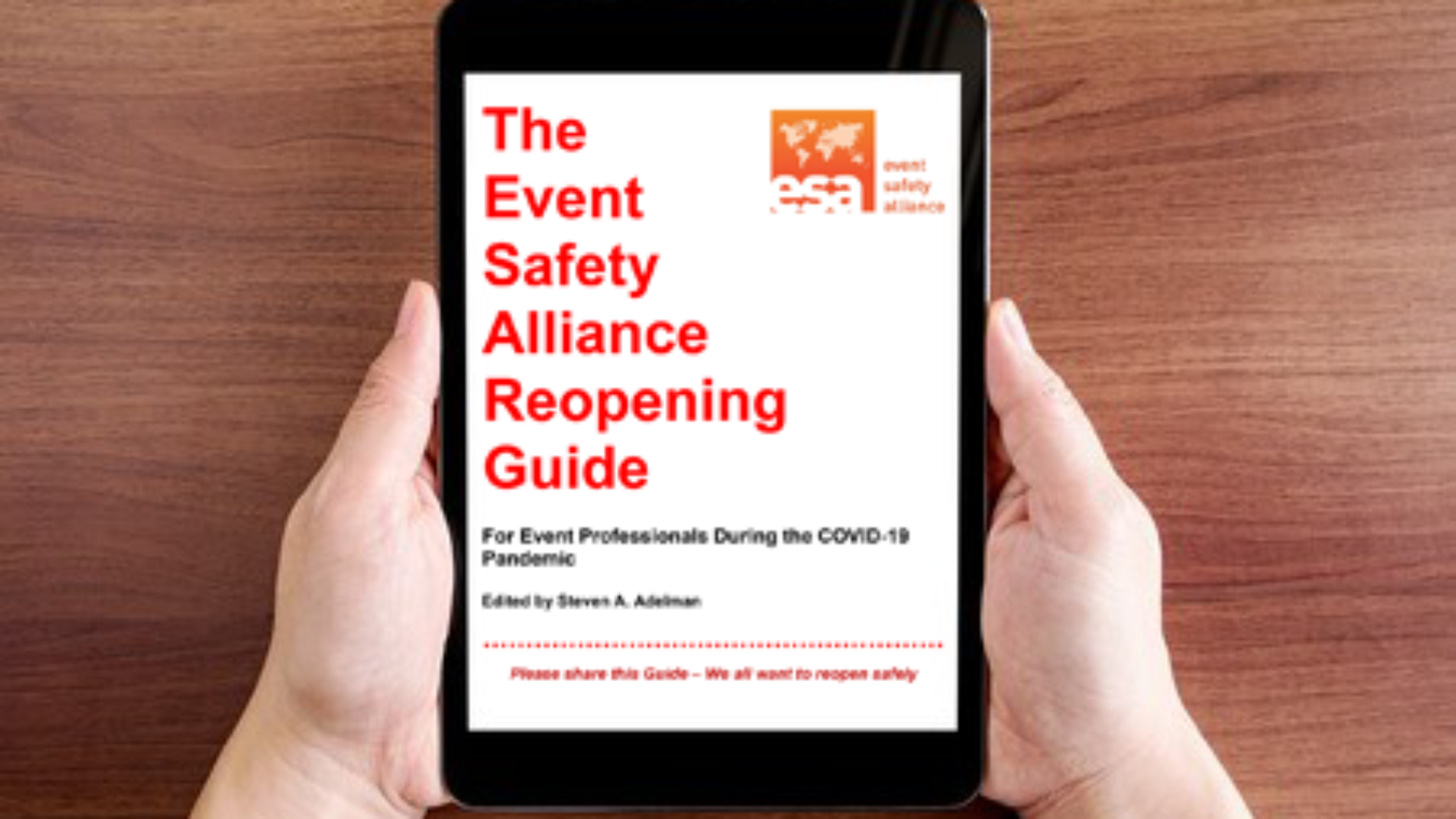As municipal officials begin to allow small groups of people to gather in public even while the fight against COVID-19 continues, there is a tremendous need for guidance how small events and venues can reopen as safely as possible under these incredibly challenging circumstances. In response, the Event Safety Alliance today released The Event Safety Alliance Reopening Guide.
The Reopening Guide addresses health and sanitary issues that event and venue professionals need to consider in order to protect both patrons and workers. Since there is still insufficient testing, no contact tracing, and no vaccine against COVID-19, this guidance is particularly detailed. The edition released today is tailored to be especially useful for event professionals reopening the smallest events with the fewest resources available to mitigate their risks, since in every municipal reopening plan these will be allowed to reopen first.
Other than emphasizing the importance of following authoritative scientific advice from organizations such as the United States Centers for Disease Control and Prevention and the World Health Organization, the Reopening Guide offers suggestions and alternative practices for consideration rather than claiming that any one practice is better than all others. Event Safety Alliance Vice President Steven A. Adelman, the head of Adelman Law Group, PLLC and editor of the Reopening Guide, explains how the document applies the legal duty of care.
“As a matter of common law, everyone has a duty to behave reasonably under their own circumstances. Consequently, there is no such thing as ‘best’ practices. There are only practices that are reasonable for this venue, this event, this crowd, this time and place, during this pandemic. Because few operational bright lines would make sense, The Event Safety Alliance Reopening Guide is designed to help event professionals think through their own circumstances. In the order than one plans an event, the Reopening Guide looks closely at the health and safety risks involved in reopening public spaces, then proposes risk mitigation measures that are likely to be reasonable under the circumstances of the smaller events and venues that will reopen first.”
The Event Safety Alliance Reopening Guide is the product of contributions from more than 300 professionals from all facets of the live event industry, from the smallest to largest producers and the many businesses that work to support them. As it says on the cover, “Please share this Guide – We all want to reopen safely.”
The Event Safety Alliance Reopening Guide is available as a free download at http://eventsafetyalliance.org.

